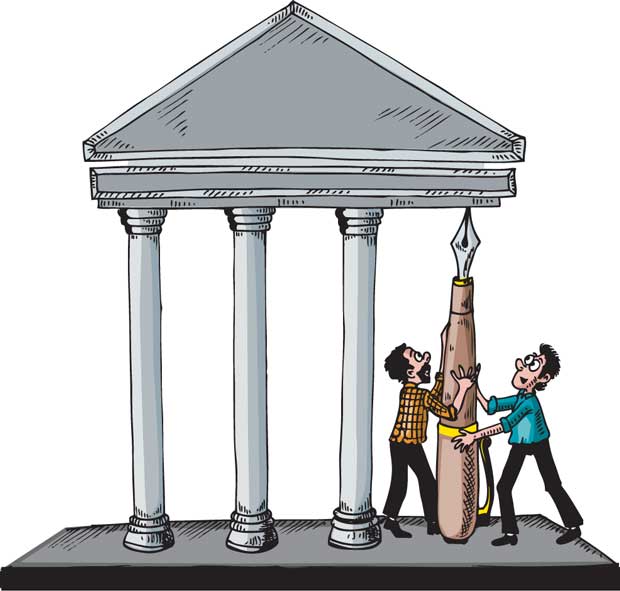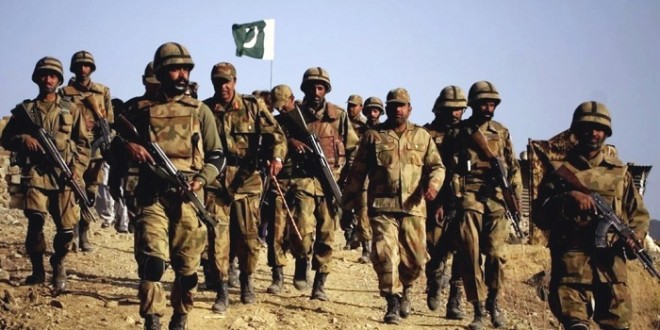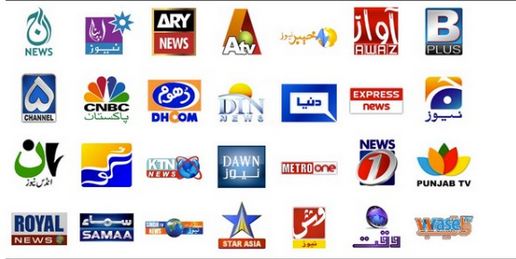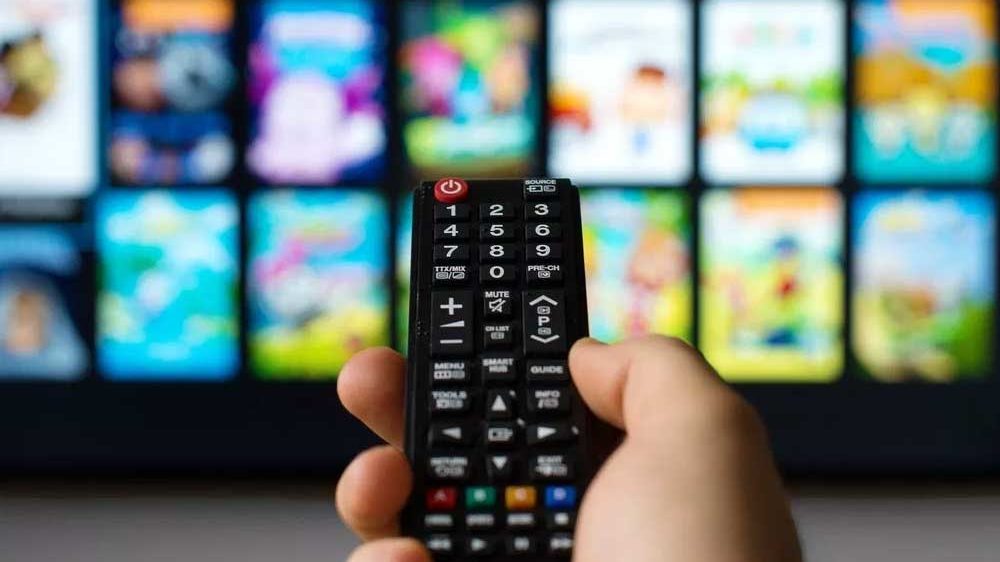The pivotal role that the media plays in today’s life has led it be known as the fourth pillar of the state along with executive, judiciary and legislature. The power of media for public perception is huge. The phenomenon has also rocked Pakistan where media outlets enjoy considerable power and influence today. However, the idea of the media being considered a pillar of the state is controversial.

Photo: dailymirror
The traditional organs of the state have been the legislative, executive and judiciary. The media has been playing a role of a watch dog that has been so instrumental that it has been regarded as a fourth pillar of the state now. Numerous reports, incidents, views, performance, events etc gets telecast-ed. The each of media to a vast audience amplifies the impact of all this telecast manifold. Since much of the news are the outlier information, anything that is far from normal, procedural, average or clean has the potential to be aired.
Terming the media as the fourth pillar of the state means that its authority and conduct has been authorized and recognized. However, the other organs of the state are state owned organs that work under official oversight and pursue public service. Media on the other hand is an institution that is largely privatized, has minimal oversight as of now and seeks maximization of profit as an objective. Being patriotic and serving the public are good lines to toe till they are popular with the masses as it sells. This stark contrast of media to the other organs of the state is critical while terming it an essential pillar of the state. If an institute does not keep the public interest over private interest, plays by its own rules and has private interests involved; then it might not be a good idea to raise its status to the level of a pillar of the state.

The Pakistani media saw rapid growth and freedom during the last fifteen years. Numerous media houses popped up. From news to entertainment, the media landscape got crowded. Along with that came easy access to cheap cable services, internet and smart phones; all ensuring the maximum reach of the media and subsequently affecting public perception. The global events such as 9/11 attack, war in Afghanistan, Iraq, Libya, Syria along with important happenings at local level such as OBL raid, Swat operation, Lal Masjid, Zarbe Azb, Elections 2008 & 20013 etc attracted people to seek more and more news and review analysis on the events. This in turn put the general public perception dependent on the media outlets.

The media on the other hand has not come up to its responsibility in the new environmental dynamics. The power of public perception manipulation was sold to local and foreign players for profiteering. And those trying to manipulate public perception seldom had a good intent. Institutes such as the Pakistan Army and ISI were one prime target. Glorification and propaganda dissemination of outfits such as TTP and BLA was done. Rifts were sowed between institutes such as Army, Judiciary and Executive. Such a criminal role against the nation and state by an institution being dubbed as the fourth pillar of the state has been ironic.
With great power comes great responsibility. Same should have been the case with the media. Investigative journalism, news analysis and highlighting issues becomes all the more important in a society where corruption is rampant and accountability is weak. While heavily censoring the media might not be the best policy for transparency, giving it a free hand has been equally detrimental. PEMRA should refine its media rules and ensure that all media outlets comply. Primary objective of the media should be set as the state interest keeping in consideration the national values. Any clear deviation should be held accountable to ensure responsibility and fairness along with national interests.

Media houses need to understand their role in national development and security. They should learn from international media which is often knife-edged critical of the state’s adversaries but actively pursues its national agenda. In this sense, it really acts as an extension of state machinery. A good example is that of Indian media which is often seen bashing Pakistan on every bilateral issue although it starkly overlooks objectivity and fairness in the process. In stark comparison, a large segment of the Pakistani media has proxy to Indian designs and acted as the media wings of RAW.
It is said that the 21st century wars are fought on the media front. It was seen that before all major US campaigns, an active propaganda was disseminated by its outlets to manipulate public perception both at national and international level in accordance with the state policy and create a suitable environment for the campaign. In Syria, the campaign was not successful along with important Russian intervention which led to indirect tactics being used by the West but not a direct invasion. The Pakistani media is also maturing and starting to toe national interest at-least in the foreign relations’ perspective.

The international image of the state and nation is of great importance. India has considerably invested in its soft-image across the globe. Pakistan lacks media presence at international level. As a result, the state’s version of its actions, policies and interests is sidelined at international level. Neither is there any good depiction of international events in the national media outlets. The national landscape can be better visualized in an international perspective where the hostilities of India, UAE and Israel etc. can be better visualized once the complete puzzle is at one’s disposal.
In short, it is a matter of fact that the role of media has become crucial in the nation life. However, the power at its disposal itself should not be the basis for terming it a pillar of the state rather, it should be held equally accountable for its operations. Putting clear objectives and regulation in accordance with national policy are necessary for its steering. Healthy critique of the state may still be done but the dynamics of reporting must be fair. The media should play an important part in the national interest especially security. There is a need to launch international media presence of Pakistan.


































I will right away grasp your rss as I can not in finding your e-mail subscription link or
newsletter service. Do you have any? Please allow me know in order that I could subscribe.
Thanks. I love it when people get together and share thoughts.
Great site, stick with it! Does your site have a contact page?
I’m having problems locating it but, I’d like to shoot you an email.
I’ve got some ideas for your blog you might be interested in hearing.
Either way, great website and I look forward
to seeing it expand over time. http://foxnews.net
Saved as a favorite, I really like your blog!